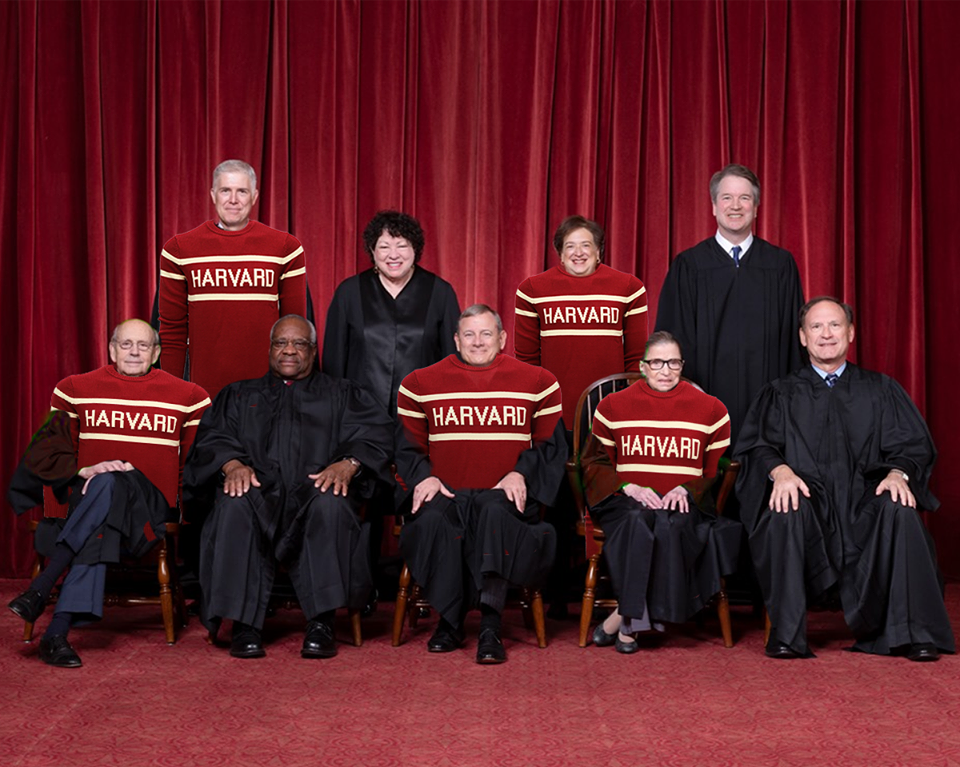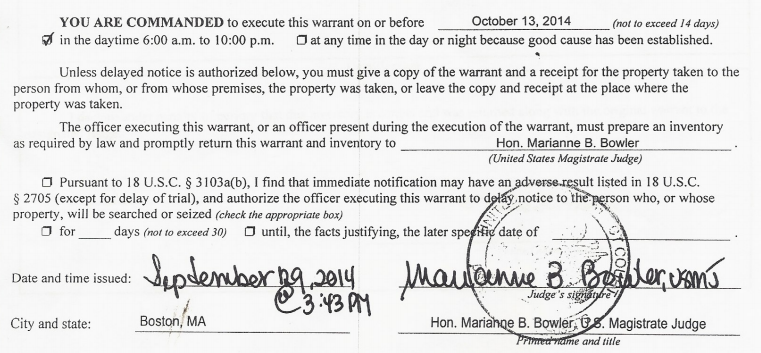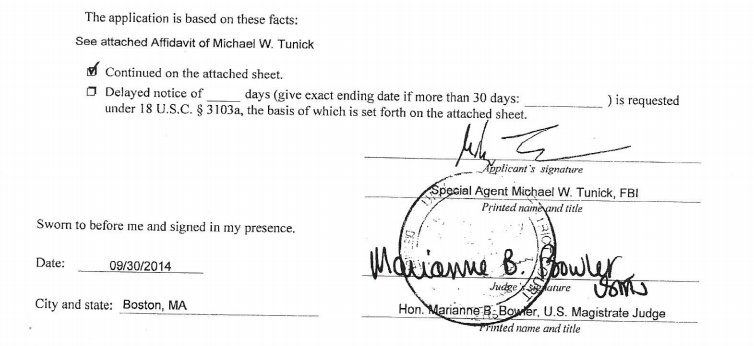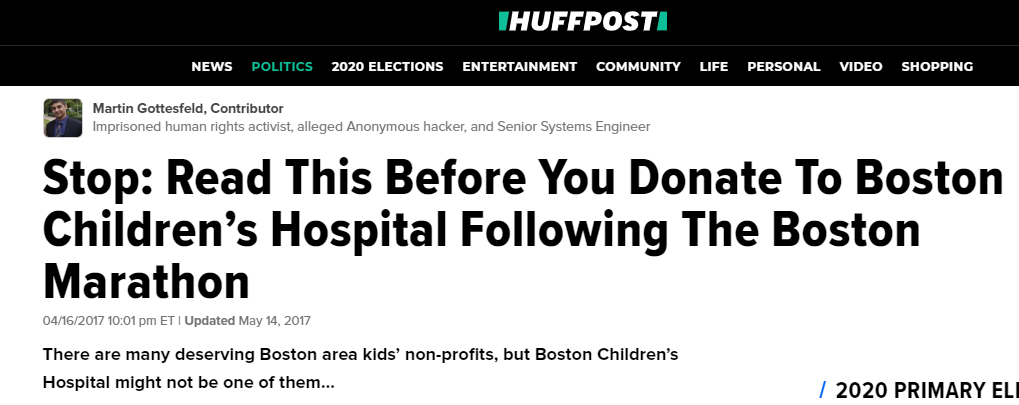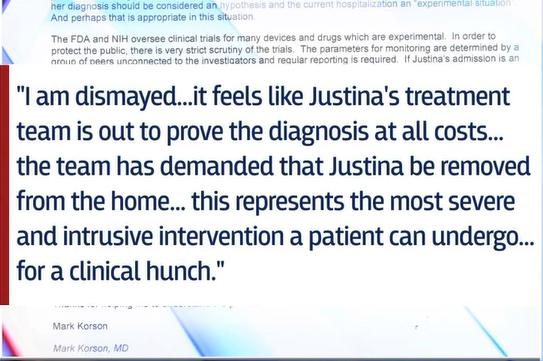Byline: By Martin Gottesfeld and Francis Schaeffer Cox
PLEASE NOTE: The authors have made this series available at FreeMartyG.com and FreeSchaeffer.com under the latest Creative Commons by-attribution commercial-use-permitted share-alike no-derivatives license.
This is part 6. Click here to read Inside the Black Sites Where Obama, Clinton, and Holder Buried Their Secrets—Part 1 of the CMU Series or click here to read How the DOJ Protected Pedophiles and Got Away With Election Meddling In Alaska—Part 5 of the CMU Series.
Harvard isn't the center of the universe.
But good luck telling its faithful that. Some of the university's true believers punish heretics for reminding people that not everything revolves around Harvard—I'm living proof.
According to a bunch of Harvard alums at the DOJ, I'm also the big, bad, scary Anonymous hacker who single-handedly knocked their $47-billion Ivy-League alma mater off the Internet by overwhelming its external network communications with more digital junk than the feds had ever seen transmitted at once. It's called a "distributed denial of service," or "DDoS" (pronounced either dee-dauce or dee-dee-oh-ehs). Here's a clip about how it works from the documentary We Are Legion:
I launched this DDoS to save a 15-year-old girl named Justina Pelletier. A group of Harvard medical researchers brutalized her and left her without her pain medications in round-the-clock agony for 16 months. They reduced Justina from a competitive figure skater, as seen in the video below, to being unable to push her own wheelchair, because, it seems, they were too proud to admit they misdiagnosed her.
 Justina Pelletier skating in a blue dress in December 2012 (Video screengrab)
Justina Pelletier skating in a blue dress in December 2012 (Video screengrab)
And why would they admit it? Harvard, after all, basically owns the U.S. Justice Department, the courts, and much of the media. This is especially obvious in my native Boston. But, I’d wager that if you look into the federal judges and last few U.S. attorneys in your area, as well as your local Associated Press and Reuters bureaus, you'll see Harvard's influence on them too, even if you live far away from Massachusetts, in a politically dissimilar part of the nation.
Still, I'm fortunate that despite Harvard's influence, the basic story of how I got locked up for protecting children like Justina from institutionalized abuse has spread fairly well thanks to Rolling Stone, Michelle Malkin, RT, and others. So, I’ll provide a brief summary before breaking some new ground, and for those who'd like to know more, I’ll leave a comprehensive history below that will also help set the record straight on a bunch of false claims and intentionally-omitted facts that have become common sources of confusion thanks to Harvard, the DOJ, and their doting allies elsewhere in the media.
My name is Martin Gottesfeld (pronounced Gott-ehs-feld). My friends and family call me Marty, and I go by "MartyG" online.
For three years now, I’ve been an investigative reporter, involuntarily embedded behind bars. The feds have transferred me eight times across five of their facilities, as well as a private detention center in Rhode Island and a county jail in Massachusetts. I've racked up 5,128 miles on ConAir, if only it had a frequent flier program...
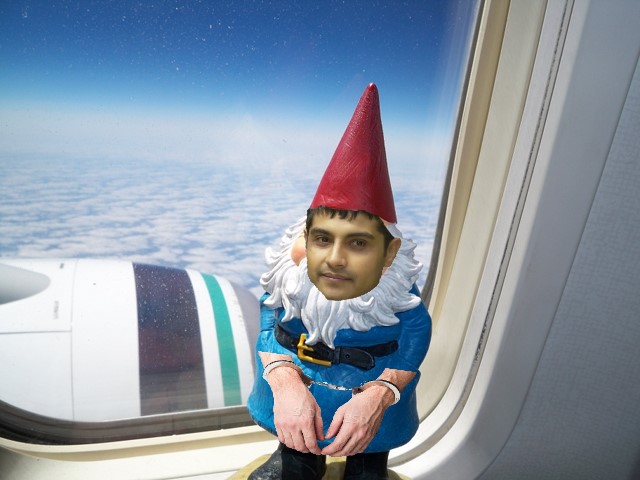 I've been everywhere man… (FreeMartyG/Creative Commons, 2019)
I've been everywhere man… (FreeMartyG/Creative Commons, 2019)
Along the way, I've exposed corrupt prosecutors and judges, child abuse and other human-rights violations, as well as lying politicians, at HuffPost, WND, Red State, InfoWars, and The Intercept. Before I transformed myself into a journalist behind bars, I was a human-rights activist on the outside, focused on protecting children who are separated from their families in all kinds of residential settings, like Justina Pelletier.
Here is a PBS interview about what happened to Justina. It aired on Emily Rooney's old show Greater Boston:
A twist of fate (more on that in the comprehensive history below) sent Justina to Harvard's $2-billion primary pediatric research and teaching facility, Boston Children's Hospital (BCH), instead of to one of Harvard's competitors across town, Tufts University Medical Center. She and her older sister had successfully been treated at Tufts for a condition that often runs in families called mitochondrial (pronounced might-toe-conn-dree-uhl) disease, or mito for short.
Yet a neurologist seven months out of medical training named Jurriaan Peters and a non-MD psychologist named Ioana Simona Bujoreanu at BCH apparently convinced themselves and BCH's administration that the renowned mito specialists at Tufts were wrong about Justina. Minutes after first meeting her, they instead insisted that she was suffering from a psychological condition called somatoform (pronounced like psychosomatic) disorder, which Bujoreanu had a grant to study from the NIH. For days, Peters and Bujoreanu tried to get Justina's mom and dad, Linda and Lou Pelletier, to agree to stop her mito therapies. They steadfastly refused.
Lou Pelletier then tried to discharge Justina to bring her back to Tufts, but the new Harvard practitioners wouldn't take no for an answer. Lou was quickly surrounded by hospital security guards. They'd blocked every exit.
Naively, perhaps, Lou Pelletier called the Boston police for help.
Unbeknownst to Lou, you see, BCH had already reported him and Linda to the state social-services agency, the Massachusetts Department of Children and Families (DCF). The child-protection team-at BCH, led by an increasingly-controversial doctor named Alice Newton, accused the Pelletiers of child abuse/neglect for rejecting the new Harvard diagnosis and trying to return Justina to her original doctors at Tufts.
The governor of Massachusetts at the time (under whose purview DCF operated) was Deval Patrick, and he's an alumnus of both Harvard Law School and Harvard's undergrad program. The chair of the Massachusetts Board of Registration In Medicine, Dr. Candace Lapidus Sloane, is a member of the Adjunct Medical Staff at BCH. Meanwhile, BCH provided free consultations to DCF on child-abuse cases and DCF had few medical staff and no [full-time] doctors of its own.
Adrift in this sea of Harvard bureaucrats, it seemed the Pelletiers never had a chance. DCF immediately took custody of Justina, making her a ward of the state. The agency then signed off on BCH's psychological treatment plan over the Pelletiers' objections, and, at BCH's insistence, DCF also steadfastly refused to let other specialists evaluate Justina and offer second opinions. Thus, BCH and DCF locked out Justina's original mito doctors at Tufts.
A state family-court judge named Joseph F. Johnston was assigned to the complaint against the Pelletiers and he hired somebody who was supposed to be "an independent medical expert" to help him decide it. That expert, it turned out though, was affiliated with BCH.
Thereafter, BCH seemed upset the Pelletiers were talking with Beau Berman, a reporter from their local Fox Connecticut station. And Judge Johnston issued a gag order, specifically forbidding the Pelletiers from talking with the press.

Lou Pelletier eventually risked being sent to jail and broke that gag order to report that Justina's life was in danger. He told the world that Justina was smuggling notes to her family hidden in art projects, writing what she didn't dare say during their single 20-minute censored weekly phone call and hour-long in-person weekly visit, which was monitored by armed guards. Then, Lou Pelletier published one of Justina's notes, embedded below. Written in her handwriting and in seemingly-obvious distress, it said, "they hurt me all the time," "thay don't let me sleep vary much," "I say it (torcher stop) then they say nuthang and kepe pushing me and goes on and on!" "[they] laff at me when I'm falling," and 'Hury!"
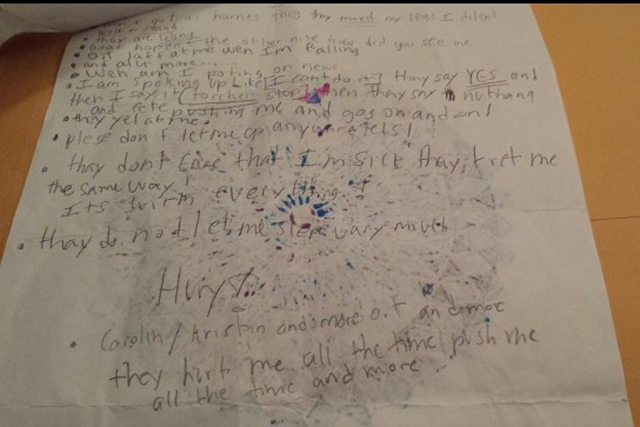 The Pelletiers reported that Justina smuggled them notes like this one, hidden in art projects. (Photo courtesy of Pelletier family)
The Pelletiers reported that Justina smuggled them notes like this one, hidden in art projects. (Photo courtesy of Pelletier family)
A lot of prominent people had stood up for Justina and her family by then. Harvard's distinguished law professor emeritus Alan Dershowitz made news the month by announcing that from what he'd seen, the law supported Justina's family and not his university's hospital. Here's a clip of Dershowitz on Huckabee on Fox News:
The longest-serving director of the Massachusetts Society for the Prevention of Cruelty to Children, a former federal prosecutor named Barry Pollock, stated publicly, "As a result, among other things, arrogance, professional mediocrity, and/or a rush to judgment," the locked psych ward where BCH held Justina against her will "appears virtually synonymous with abuse for many children."
A former nurse from that psych ward named Kathleen Higgins published an own letter, saying that she'd reviewed Justina's medical records and, "It would be far more accurate to call the 'treatment' forced on Justina by its more proper term: 'torture'."And #FreeJustina trended on Twitter repeatedly thanks to thousands of people.
Yet none of these high-profile actions brought Justina home. It had been over a year. The situation seemed dire.
Now, the media collectively loses its mind over hackers, and this was no different. The story went international. Donors noticed.
I wasn't aware at the time, but according to the DOJ, the deluge of digital junk I sent didn't just knock BCH offline, but the rest of Harvard too. So, the university noticed in a profound way as well.
I made it known that I'd be back if BCH didn't let Justina go:
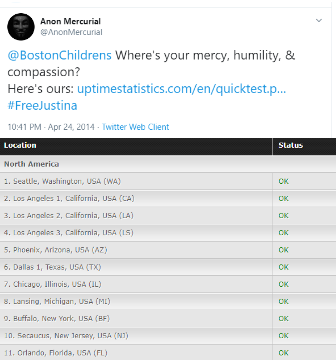
Top: tweet reading, “@BostonChildrens Where’s you mercy, humility, & compassion? Here’s ours: [link to uptimstatstics.com] #FreeJustina; Bottom: partial screenshot of uptimestatistics link showing service was restored (FreeMartyG/Creative Commons, 2019)
The next month Justina was suddenly transferred to a facility in her home state of Connecticut—a move that DCF previously insisted was impossible. The restrictions put in place at BCH's insistence that prevented Justina's family from talking with her about her treatment and care, as well as from filming her, were lifted. The armed guards who monitored their visits were gone too.
Finally, Justina could speak for herself.
Wasting no time, one of the Pelletier sisters recorded this cell-phone video of Justina in her wheelchair, pleading with Governor Patrick and Judge Johnston to let her go home with her family:
It went viral. And it demolished the wall of patient confidentiality that BCH spokesperson Rob Graham used for a long time to dodge questions about Justina's condition. The video demonstrated the stark effect that BCH's psychological treatment plan and the deprivation of Justina's mito therapies was having on her physical health.
Judge Johnston reversed his ruling days later. Neither he nor BCH admitted any fault.
But Justina could go home. After more than a year without her mito treatments though, she couldn't walk. So Lou carried her. She remains crippled today.
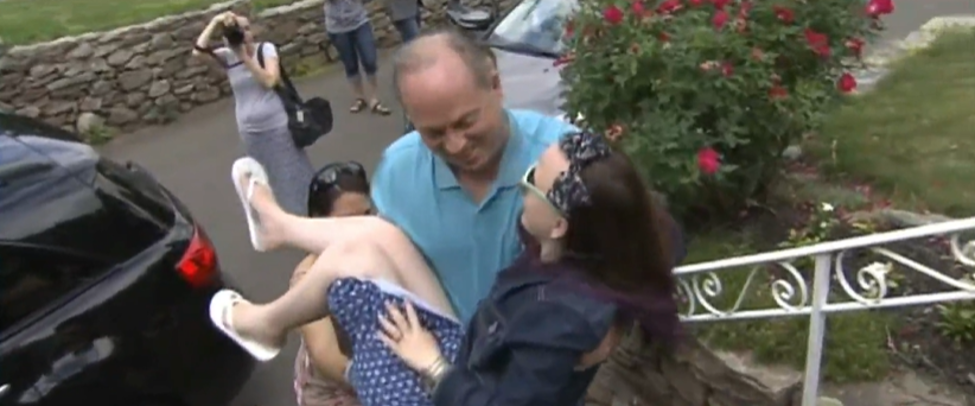
Justina Pelletier was unable to walk when Judge Johnston reversed his ruling, so her father Lou Pelletier carried her into their home. (CBS Boston screengrab)
Justina then gave her first in-person interview to Beau Berman, confirming, her experiences under the BCH treatment plan:
Berman won back-to-back Edward R. Murrow awards for his continuing coverage of Justinatis saga, and it was the most-viewed story in the history of Fox Connecticut'5 website.
Justina spoke in Washington, D.C., and she received a standing ovation. "Justina's Law" was introduced in the House of Representatives and 32 Congresspeople co-sponsored it, including then-Representative Mike Pompeo (who is now secretary of state). The goal was to ban entities like BCH from using federal funds to conduct medical experiments and research on wards of the state without their consent when they don't stand to benefit directly from the results. Justina's Law, however, died in committee, and what happened to Justina and her family continues happening to others at BCH and elsewhere.
Meanwhile, the Boston FBI and the local U.S. attorney's office got involved, under the leadership of Carmen Ortiz, the controversial top federal prosecutor in Massachusetts.
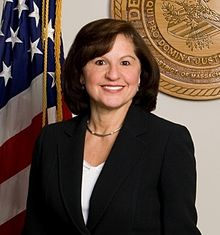 After mentoring under a Harvard Law School professor, Carmen M. Ortiz (pictured) was appointed as U.S. attorney for Massachusetts during the Obama administration and she remained in office there after 61,000 people signed an online petition to fire her. (DOJ, Public domain)
After mentoring under a Harvard Law School professor, Carmen M. Ortiz (pictured) was appointed as U.S. attorney for Massachusetts during the Obama administration and she remained in office there after 61,000 people signed an online petition to fire her. (DOJ, Public domain)
But the feds weren't investigating Harvard's flagship children's hospital for civil rights violations against Justina and her family, nor for healthcare fraud for billing the federal Medicaid program hundreds of thousands of dollars to treat a ward of the state for a condition that at some point its practitioners likely realized she didn't have.
Ortiz, it turns out, mentored under Harvard Law Professor Philip Heymann. Later, then-Senator Ted Kennedy (of the Harvard Kennedy School clan) recommended her to his fellow Harvard [Law] grad Barack Obama for the role of U.S. attorney on Harvard's home turf in Massachusetts. Of course, Kennedy was no apparent stranger himself to receiving special treatment from law enforcement and it seems he expected no trouble from Ortiz. The Harvard Kennedy School, moreover, was one of the first places Ortiz showed up with her hand out years later when she left office at the end of the Obama administration.
Harvard rejected Ortiz though, and she resorted to her safety school, Boston College, after the U.S. Court of Appeals humiliated her for interfering in local politics. For years, she charged people she seemed not to like for misdeeds that the high court and others found to be non-crimes.
Further, Ortiz accused local political figures of nepotism while Steve Heymann, the son of her Harvard mentor, was her division chief for cybercrime prosecutions—an arrangement that resulted in the younger Heymann using—and many say abusing—his power to bully child prodigy and trailblazing Internet innovator/entrepreneur Aaron Swartz to suicide under the threat of dubious federal charges and possible sentencing by a perhaps more dubious federal judge.
After Swartz hanged himself, Ortiz repeatedly told the public that she and her office had no idea they were having such an effect on him, and if only they'd known, she claimed they'd have behaved differently. Emails reveal, however, that Swartz's lawyers explicitly told Heymann that he was making Swartz suicidal and Heymann responded by piling on, "Fine, we’ll lock him up.” Swartz was 26 years old. His alleged non-violent crime was meant to benefit the public without him pocketing anything for himself.
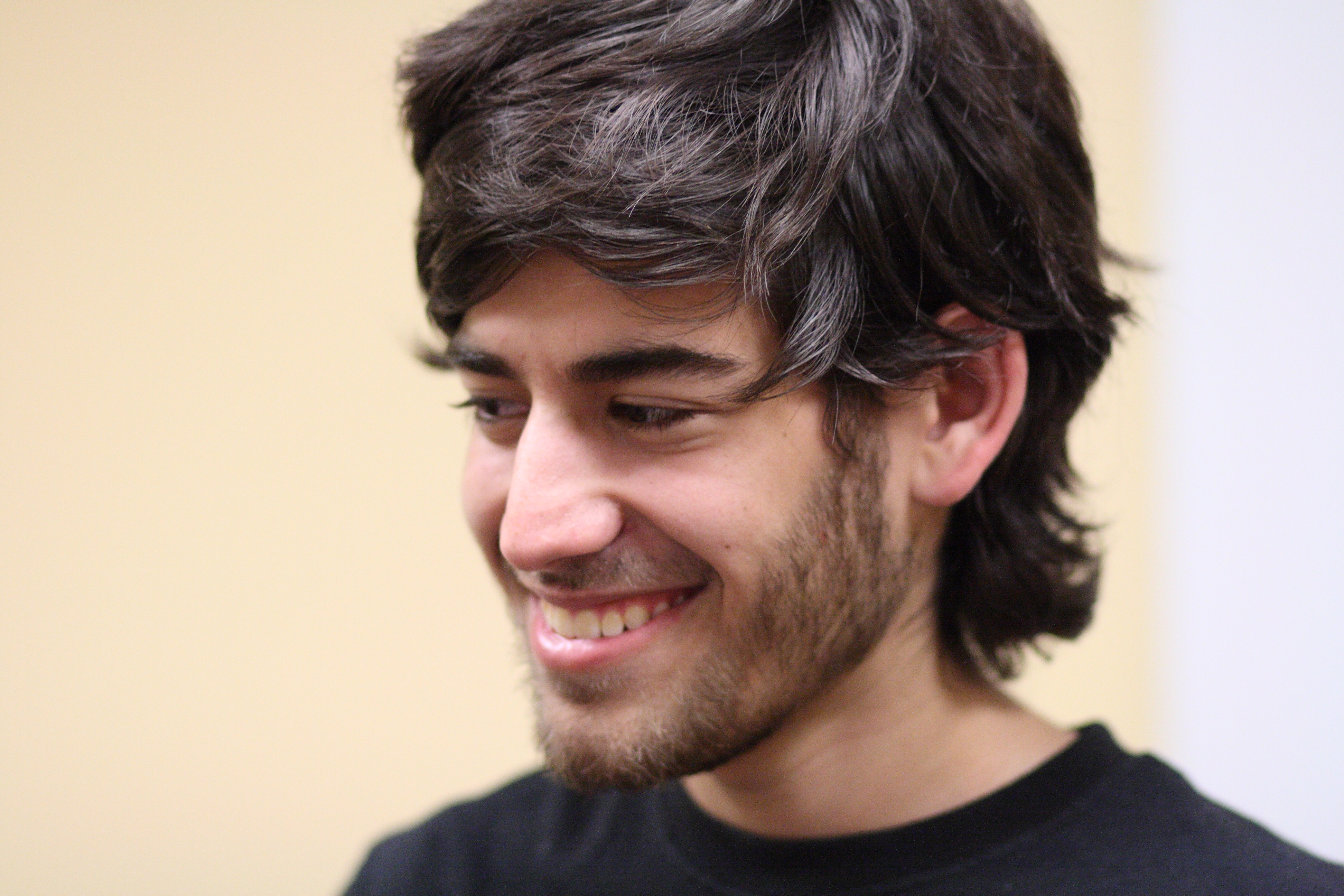 Aaron Swartz before Carmen Ortiz's office knowingly drove him to suicide. (Sage Ross, CC BY-SA 2.0)
Aaron Swartz before Carmen Ortiz's office knowingly drove him to suicide. (Sage Ross, CC BY-SA 2.0)
Some 61,000 people demanded that Obama fire Ortiz in the wake of Swartz's death. Obama, however, refused to fire his fellow Harvard affiliate. Ortiz, in turn, refused to fire the son of her Harvard mentor. Under obvious pressure though, she did appoint a new cybercrime division chief.
Thus, it seems the feds in Boston would never raid a building full of their fellow Branch Harvidians, even if a child's life actually depended on it. After all: Thou shalt not embarrass Harvard.
And thou shalt certainly not cyber-depants Harvard on the altar of the world stage during its ritualistic human sacrifice of a young girl like Justina as an offering to its own supernatural ego.
So, I guess it makes sense that the feds weren't getting involved to seek justice for Justina, but rather to ensure that no one would again do what's necessary to save a child like her at the expense of Harvard's reputation. Further, Ortiz and her new cybercrime chief, Harvard [Law] grad Adam Bookbinder, would have inside help from the federal bench.
In September 2014, Bookbinder sought out U.S. Magistrate Judge Marianne "Mimi" Bowler—who is a former Harvard Medical School research assistant, as well as a former trustee of Harvard-partnered New England Baptist Hospital, a member of the Visiting Committee on Neuroscience at Harvard’s largest teaching hospital (Massachusetts General), a former director of The Boston Foundation (TBF), which donates millions of dollars to Harvard and its hospitals, and the wife of Dr. Marc Pfeffer (who is, as Bowler seemingly reminds everybody, the Dzau Professor of Medicine at Harvard Medical School and a senior cardiologist at Harvard-affiliated Brigham and Women's Hospital (BWH), where his department works closely with its counterpart at BCH, which in turn apparently stopped Justina's heart medicine).
Maybe all of these connections explain how Bowler granted a search warrant for my home on September 29th, 2014, when another magistrate judge was primarily responsible for issuing such warrants that month and when the very first page of the affidavit sworn under penalty of perjury in support of that warrant by FBI Special Agent Michael Tunick was dated the following day, September 30th, 2014:
Regardless, I knew the fix was in shortly after the Boston FBI raided my home. On that day, Special Agent Jeffrey Hughes promised he'd put me in touch with people who could investigate the torture that befell Justina and that was revealed by our own Government Accountability Office (GAO) happening to other kids in this sworn Congressional testimony:
The only subsequent efforts I saw Agent Hughes, Agent Tunick, and the notorious Boston FBI take though, were to terrorize my wife Dana and me. It's hard for me to imagine how any law-enforcement officer confronted by Justina's case or the video above could choose to protect the torturers of those kids and still deserve to walk around America as a free person in a position of authority. But that's what Ortiz, Bookbinder, Tunick, Hughes, and their colleagues were doing and there was no one to rein them in.
So, at a time when I wasn't charged with any crime and when I wasn't subject to any travel restrictions, Dana and I took a 23-foot boat to Cuba and sought political asylum away from Harvard's allies in the federal government. Ortiz, Bookbinder, Bowler, and their Harvard crew had chased me to the ends of the Earth, as had happened to Cox on the opposite corner of the continent.
Cuba then denied my asylum claim after its military spent 4 weeks moving us from safe house to safe house on the island. Four days before Obama landed in Havana to normalize air travel between the 2 nations, I was assured that Raul Castro himself had given the order to put Dana and me back on my boat and that the boat had been properly maintained in good working order at the marina where we'd come ashore.
The boat, however, broke down not even 50 miles into the trip back to Florida. I put out a distress call, and as shown in the video below, we were rescued by Disney Cruises:
I was formally arrested when we returned to port in Miami.
Former Assistant U.S. Attorney Adam Bookbinder and later Bowler needed no queue to refer to BCH simply and spontaneously as "Children's,” the affectionate name reflexively used by many of BCH's allies. It was as if Harvard's rules overpowered the laws passed by Congress, like 28 U.S.C. §455(a). which mandates, "Any justice, judge, or magistrate [judge] of the United States shall disqualify himself [or herself] in any proceeding in which his [or her] impartiality might reasonably be questioned."
Thus, by failing to take herself off my case, Bowler basically proved what I told the Cuban government about the unlawful retaliation and political show trial I faced in my native country. The only thing I was fleeing was injustice. But the ironic vindication of my asylum claim was of little comfort on the way back to my cell when Bowler labeled me a "flight risk" and denied me bail.
In comparison, unlike me, Imran Awan had a passport and he was arrested trying to use it to board an international flight at the airport. Yet, he went home on bail with a GPS-monitoring bracelet.
And Bowler herself sent Robel Phillipos, a suspected accomplice of Boston-Marathon bomber Dzhokhar Tsarnaev, home on a GPS bracelet. The New American picked up on this disparity in an article about Bowler and my case in its December 2017 print edition, entitled, “Save a Girl's Life, Get Treated Worse Than a Terrorist”.
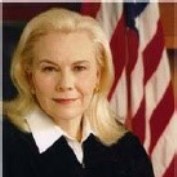 U.S. Magistrate Judge Marianne "Mimi" Bowler granted bail to a suspected accomplice in the Boston Marathon bombing but not to me when I was accused of helping Justina Pelletier. (UScourts.gov)
U.S. Magistrate Judge Marianne "Mimi" Bowler granted bail to a suspected accomplice in the Boston Marathon bombing but not to me when I was accused of helping Justina Pelletier. (UScourts.gov)
"This whole case smells of a personal vendetta," The New American noted. "Bowler's allegiance appears divided between justice and Harvard, with justice getting the short end of the stick."
Hiding the indecency of what the Harvard feds were doing while also shielding BCH from the implications of its behavior, they avoided using Justina’s name. To them, she was merely "Patient A", a faceless subject of what they euphemistically called a "custody dispute", and not a child whose rights as an American citizen and a human being were violated. The Harvard feds insisted that BCH was the real victim, not Justina in her wheelchair, recounting the "torture" she endured and demanding that her tormentors "get what they deserve".
On the political right, however, Justina’s case was emblematic of the dangers of government interference with family rights and of government-run nanny-care. Meanwhile, there were those on the left—especially at The Huffington Post, Newsweek, and Rolling Stone—who remembered what Ortiz did to Swartz and to other good people.
And I wouldn't go quietly. Too much was at stake for too many kids like Justina and too many freedom fighters like Swartz. As a survivor of child abuse myself, I was compelled to fight against any effort to relabel victimizers as victims.
Yet, as a prisoner, there was little I could do. So, I followed the only plan that came to mind. With the help of fellow inmates, many of whom survived institutionalized child abuse as wards of the state, I began discreetly piling on empty carbs and gaining weight. I was up about 30 pounds (13.63kg) in 7 months.
With coverage from The Huffington Post and an agreement with Rolling Stone that would put the back story in front of over a million people, I launched my hunger strike on October 3rd, 2016—just over a month before the presidential election. My 2 demands were: a pledge from the candidates to order federal law enforcement to go after the individuals and institutions that abuse kids like Justina, and a pledge from Ortiz to stop her well-established pattern of political prosecutions against people like Swartz and me.
About 3 weeks in (and just before the election), Associated Press (AP) reporter Denise Lavoie started responding to our inquiries and we set up an interview. It should've been a seminal moment.
Back then, I trusted AP more than the federal government. And it’s hard to imagine a more vulnerable source than I was as an imprisoned activist weeks into a hunger strike speaking to AP over a phone line that was monitored by my prosecutors.
Yet the article AP put out functioned like a DOJ press release. Despite Lavoie's spoken assurances, there were neither any mentions of Justina's pain and suffering, nor of the suffering of other institutionalized children. There wasn't any mention of Harvard either, and none of the essential information that I provided was present to explain the nature of my hunger strike.
But AP did include several misleading tidbits that very likely came from Ortiz's office. Thus, AP's real goal, it seemed, was to discredit me, and AP apparently didn't think twice about deceiving me on the record to do so.
I later came to accept that AP and its counterpart Reuters function largely as public-relations firms for the DOJ. Reporters like Lavoie, as well as her colleague Alanna Durkin Richer and Reuters storyteller Nate Raymond (who both covered later developments in my case with the same apparent bias), rely on leaks and illegitimate tip-offs from federal prosecutors. Such people are unlikely to bite the hands that feed them in order to shed light on abused children and imprisoned human-rights activists, lest their sources at the DOJ blacklist them.
So, sources outside the DOJ are well-advised to listen to Lavoie in my interview above and contrast her words therein to what AP actually published. If AP broke its word to me, and if AP and Reuters whitewash over tortured children for the DOJ, can they really be trusted as objective gatherers and reporters of the news?
 Journalists or unofficial press agents for the DOJ? Denise Lavoie of the Associated Press (AP) (left), Alanna Durkin Richer of AP (center), and Nate Raymond of Reuters (right) (All Twitter profile pictures)
Journalists or unofficial press agents for the DOJ? Denise Lavoie of the Associated Press (AP) (left), Alanna Durkin Richer of AP (center), and Nate Raymond of Reuters (right) (All Twitter profile pictures)
I went on though, hoping that Rolling Stone would publish during my hunger strike and help clear the air. But Rolling Stone's article was delayed over and over again due to circumstances beyond anyone's control. The media largely hadn’t expected Trump to win and there was heavy competition in the news cycle afterward.
I ended my strike at the 100-day mark on January 10th, 2017, after Ortiz announced her resignation. I lost 50 pounds (22.7kg). Rolling Stone published "The Hacker Who Cared Too Much: How a Crusade to Save Children Landed a Hacker in Prison" 6 months later.
Now, there were some actual issues in Rolling Stone’s coverage too. For instance, Dana and I weren't ready to discuss our time in Cuba. So, Rolling Stone was in the dark on that topic and kind of glanced over it, making it sound like the boat broke down on the way there, instead of after we'd been missing for 4 weeks. The soul of the story, however, is intact. Unlike Lavoie, Richer, and Raymond at AP and Reuters, and some others elsewhere, David Kushner put the issues in my case on display front row center at Rolling Stone and vindicated that my DDoS endangered no one.
In the months before Rolling Stone published though, my father died. I moved for bail on a temporary emergency basis to attend his funeral, but Bowler said no.
She never disclosed anything about her connections to my case from her personal life outside the courtroom, as seemed to be required by the Code of Conduct for United States Judges. But we knew a lot by then without Bowler coming clean. This led the DailyWire to publish “EXCLUSIVE: Jailed Hacktivist Who Fought To Save Girl’s Live Blocked By Biased Judge From Attending His Father’s Funeral."

The DailyWire published EXCLUSIVE: Jailed Hacktivist Who Fought To Save Girl’s Live Blocked By Biased Judge From Attending His Father’s Funeral on April 9th, 2017.
When Rolling Stone asked me about missing the last year of my dad's life, his death, and his funeral, I thought about how happy he would've been to hold my first child the way he held me, and how my wife and I could've given him that experience if not for Bowler, Ortiz, and their Harvard team. I told Rolling Stone that the price I paid for saving Justina was heavier than I expected, but that I don't regret it.
My dad survived institutionalized child abuse in the years following the Great Depression at the Hebrew National Orphan Home in New York. He refused to talk about it, as many survivors do. But one of his fellow survivors named Sam George Arcus wrote a memoir called Deja Views of an Aging Orphan: Growing up in the Hebrew National Orphan Home. I was shocked when I read it.
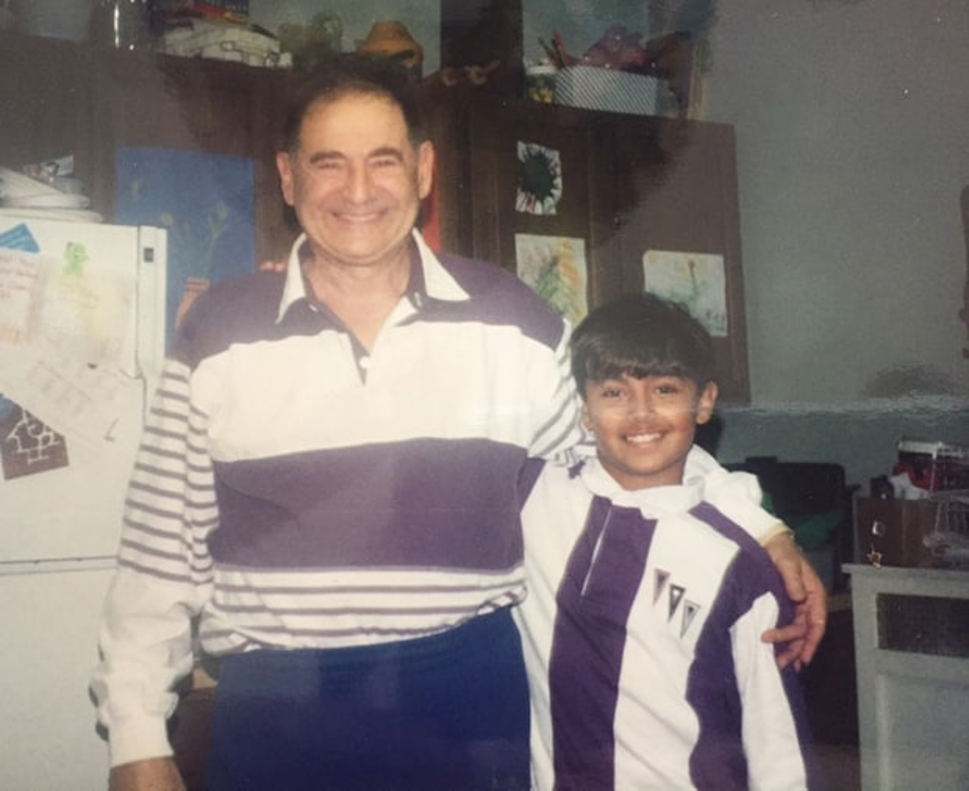
Survivor and son: Jay G. Gottesfeld (left) and Martin S. Gottesfeld (right) during Martin's childhood in Andover, Massachusetts. (Gottesfeld family photo/Creative commons)
And I'd like to think that my dad understood my absence in his final days. When he grew up in Brooklyn and was put in "the home", when he pulled himself up by his bootstraps, earned a scholarship to Brooklyn College, became a Bridge champion with my mom Gloria, who majored in math like he did (but at a time when women just didn't major in math), and when they each took on a heavy course load and graduated a year early with their bachelor's degrees to cut expenses still further, future—U.S.-District-Court-Judge Nathaniel Matheson Gorton was born an heir to the Gorton's seafood brand then followed his older brother to Dartmouth as a legacy admission before following him to Columbia Law School too.
When Nathaniel Gorton became an unremarkable lawyer whose name scarcely appears in federal case law and when Mimi Bowler wined, dined, and married her way into the Harvard crowd without attending Harvard herself, my dad became an American rocket scientist on his own merits during the Cold War. While future-Senator Slade Gorton Jr., Nathaniel's older brother, parlayed his privileged birth, my dad worked on the reactor design for America's first nuclear attack submarine, then on various parts of the Apollo Project, including the Lunar Excursion Module (LEM).
Later, after Senator Slade Gorton Jr. campaigned with George H.W. Bush in 1988, and after Bush nominated Nathaniel to the federal bench for life even though it seems he never litigated a single federal criminal case, I made my own way into Phillips Exeter Academy a year before Mark Zuckerberg. Like Aaron Swartz, I made my own professional contacts too. I sold my own computer programs at the ripe old age of 12.
The help I received from my father started when I was 3, when he held me as he typed FORTRAN code and had me hit the Enter key for him at the end of each line; when he taught me about algorithms and subroutines. My inheritance was of a different sort than Nathaniel Gorton's. It's more like that of Aaron Swartz, who became a Harvard research fellow as a college dropout. (Yes, Swartz was a victim of what some might call Harvard cannibalism.)
Further, while my dad was getting ready for America's first manned moon mission in December 1968, more than 40 years before Nathaniel Gorton became the federal trial judge for both Swartz and me (magistrates like Bowler can't try federal felony cases without the consent of the defendant), Gorton's father Slade Sr. had his own blast-off when he tried using 5-6 pounds of dynamite to blow up a 78-plus-ton monolithic block of reinforced concrete inside a tar-roofed wooden building he'd just purchased for his family's seafood business.
Despite the main wall that was some 6 feet or so away from the 9-by-9-by-10foot rock solid monstrosity, somehow Slade Sr. expected the blast would only cause minor damage to the surrounding structure.
The explosion totaled the building instead though, as many folks who've never run a corporate enterprise, but who have watched Loony Toons, might've expected.
 "Dwats!" (FreeMartyG/Creative Commons, 2019)
"Dwats!" (FreeMartyG/Creative Commons, 2019)
When the dust settled, the Phoenix Insurance Company had the gall to deny Slade Sr.'s claim. Records reveal something may have been said about his policy not covering him "blowing up his own building."
For his part, Slade Sr. seemed as undeterred by common sense, mockery, and potential insurance fraud charges as he'd been before the blast. So, he and his family seafood business filed a federal lawsuit about 20 years before Nathaniel became a federal judge in the same district of Massachusetts.
Yet, it was me who Judge Gorton later accused of hubris and sentenced to 10 years for daring to humble Harvard so I could save Justina. And Judge Gorton seemed like a chip off the old block at that hearing when it became apparent he could hardly define the word hubris, even with the help of one of his cheat-sheets. Though, it isn't too much of a surprise that Nathaniel Gorton would try (and also screw up) such a pedantic display of legal hocus-pocus, pretentious moral posturing, and academic elitism, à la the snobbish Harvard antagonist in the famous bar scene from Good Will Hunting, nor that he would place the reputation and power of the Harvard-centric aristocracy that coddles him over the life and human rights of a middle-class learning-disabled child, such as Justina.
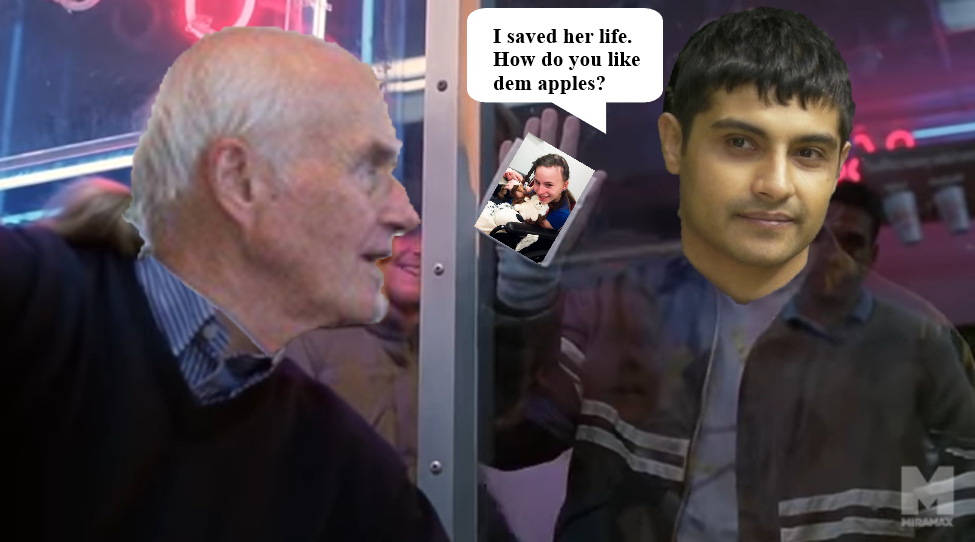
"I saved her life. How do you like dem apples, Judge Gorton?" (FreeMartyG/Creative Commons, 2019)
You see, it turns out that the cardiology department at Harvard-affiliated Brigham and Women's Hospital (BWH), where Bowler's husband works, announced that it would pilot 4 "Eating Heart Healthy" studies to benefit the Gorton family seafood business in September 2014. That was the same month Bowler issued the search warrant for my home—a day ahead of the date on the front page of its application.
Before we discovered these clinical trials, we asked Judge Gorton for a hearing in order to call Bowler's husband to the stand and question him about his research and what Bowler knew about that research as of September 2014, when she issued the warrant. Rather than disclose his own connection to Harvard and to Bowler's husband though, Gorton simply denied us the suppression hearing.
We've since found other conflicts of interest too. For example, BCH's donor list for the year I helped save Justina includes the Gorton family business, Slade Gorton & Co., Inc., and according to Judge Gorton's required annual financial disclosures, he's a "Stockholder, Clerk/Secretary, and Director" of that family business. That list of donors, moreover, is located on the very same website I knocked offline.
The conflicts go further, and include an accountant who was on my jury and who worked at one of BCH's partners, where Judge Gorton listed himself as a "Member of the Corporation."
Nowadays though, Judge Gorton seems to consider himself above the laws that mandate his disqualification from my case. But 20 years before Gorton became a federal judge, his family lost its lawsuit against the Phoenix Insurance Company, leaving behind an official record almost as spectacular as the explosion itself:
I find that [Slade Gorton Sr.] had no intention of "blowing up his own building"...
My difficulty with the plaintiffs’ arguments stems from the special character of the act, namely the use of dynamite in a single indoor explosion, to demolish a massive block of concrete containing metal particles.
U.S. District Court Judge Levin H. Campbell, finding for the defendant in Gorton et al. v. The Phoenix Insurance Company 339 F.Supp. 241 (D. Mass. 1972)
The Gorton family business didn't bother appealing, it seems, but one may wonder how the case would’ve turned out if Nathaniel had already been on the bench. That modicum of collective discretion aside too, Judge Nathaniel Gorton might be too much of a buffoon to understand the hypocrisy of a legacy Ivy-Leaguer like himself accusing Harvard's critics of arrogance. I know I'm not the only one to notice the bewildered soul-dead look in the eyes of Judge Gorton's clerks when it becomes starkly apparent their judicial Emperor Palpatine is wearing no clothes, so to speak.
After spending nearly 3 decades as a federal judge, Gorton also shamelessly professes his ignorance of well-known Supreme Court decisions like Houston v. Lack when his proceedings drift away from the prepared scripts he can be seen reciting like Anchorman character Ron Burgundy clinging to a TelePrompTer®.
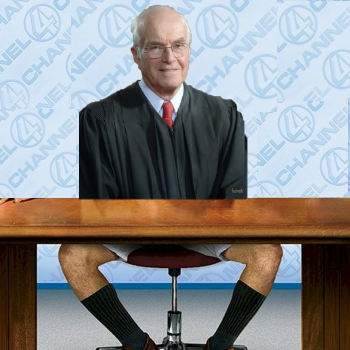 "[Expletive deleted] you, truth and justice!" (FreeMartyG/Creative Commons, 2019)
"[Expletive deleted] you, truth and justice!" (FreeMartyG/Creative Commons, 2019)
And for reasons detailed below, it seems the Pelletiers, like most parents, had about as accurate an impression of what happens inside Boston Children's Hospital as the Phoenix Insurance Company had of what Slade Gorton Sr. was about to do in the fragile building it had just underwritten for him. Those who've followed my writing or Justina's case closely, however, may have already encountered this information and might want to click here to read Abandon All Hope, Ye Who Enter Here—Part 7 of the CMU Series.
For the unfamiliar and for those reading about my case with an open mind after the DOJ and its allies at AP and Reuters misled them, let me say first that nothing I did endangered anybody. Justina was the only hurt child in my case and she suffered at the hands of Boston Children's Hospital and its overseers at Harvard.
This immutable truth notwithstanding, Harvard's feds seemed desperate to paint me as the bad guy. That was likely due to the power of Justina's voice, coming from the wheelchair where they helped put her by ignoring her federal civil rights. They relied on their control of reporters like Levoie, Richer, and Raymond and the fact that most people aren't technology experts to concoct an inaccurate but sensationalized media narrative that buried Justinats pain and ongoing immobility and misrepresented my efforts to save her.
It's a fact that my DDoS affected BCH's external Internet communications without in any way targeting-its medical devices and equipment. It's a fact that the DOJ tried and failed to convince my jury that anything I did even potentially affected the care of a single patient. And it’s a fact that my jurors wrote to Judge Gorton saying they were deadlocked.
Indeed, they only returned a verdict after Judge Gorton repeated his dubious instruction to them that my intent to save Justina's life was legally irrelevant. I guess the industry research Harvard-affiliated BWH conducted for Gorton's family business in the department where Bowler's husband works was more important to Gorton than Justina's life.
Prosecution witness after prosecution witness, moreover, including BM's own doctors, confirmed under oath that no patients were affected.
Yet, federal prosecutors David J. D'Addio and Seth B. Kosto made it seem like I cyber-attacked pacemakers and NICUs in the drive-by media. Long after they failed to convince my jury that a single patient was potentially affected, they continued to act like thousands of children nearly died. But here's something AP and Reuters didn't cover and my jury didn't hear: Kosto's wife Staci Eisenberg did her residency at BCH and currently works for Brigham and Women’s Hospital. For his part D'Addio donates to Greater Boston Legal Services, a BCH-aligned legal group, and his parents John and Regina D'Addio are doctors. Perhaps these connections help explain the prosecutorial misconduct and false filings D'Addio and Kosto made in my case.
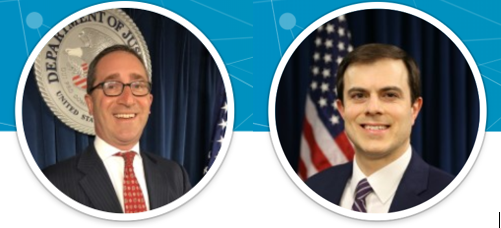
And if I seem remarkably sure that my DDoS didn't affect any patients, that's because I did business continuity and disaster recovery planning at the company that makes the software used by one of the 5 largest transplant tissue banks in the United States to track human organs for transplantation. Quite frankly, I planned for much scarier contingencies in the healthcare sector than a brief Internet outage. And I find particularly distasteful the dishonest way D'Addio and Kosto preyed on people’s fears to distract the public from the impunity with which Harvard's feds let Harvard's doctors torture Justina.
In reality though, here's a headline you never see: "Internet Outage Kills 12". Simply put, since Internet outages are unavoidable, hospitals and medical devices are designed to function without the Internet. Otherwise major catastrophes would happen on a daily basis in healthcare settings. BCH had Internet outages before my DDoS and it's almost certainly had at least one since as well. Indeed, no hospital incapable of handling an Internet outage would achieve accreditation in the first place.
Would you bring a loved one to any place where an Internet outage might endanger them?
The only life at stake in my case was Justina's. My trial only further proved this.
Now, it's also quite telling that the same reporters who misrepresented the supposed danger to other innocent children also chose to omit from their coverage of my case Justina's very real suffering and the very real danger to her life. How can such an explicit misrepresentation and such a simultaneous omission be honest? To me, anyway, it's clear that this combination was both intentional and anything but objective. AP's deception, caught on the audio recording of its own reporter misleading me, was the final nail in the coffin of the legitimacy of AP's coverage. Clearly AP knew what it was doing.
Further, if the DOJ is telling the truth and if Bowler and Gorton have nothing to hide, then why restrict my ability to publish in a "communications management unit"? Wasn't moving me here an outright admission of their guilt?
Yet, there's actually more to it.
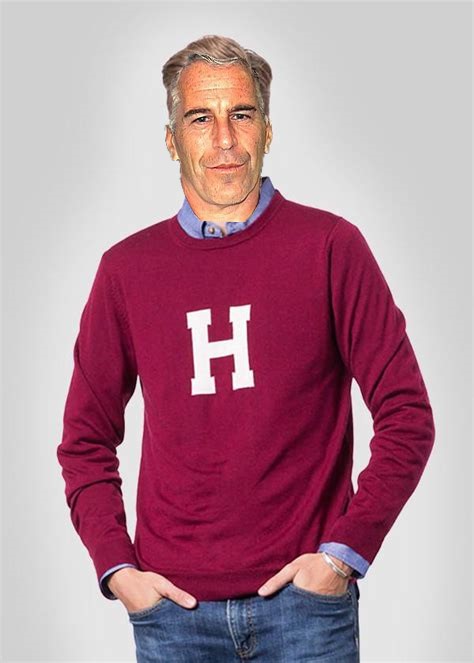 Jeffrey Epstein isn't the only convicted pedophile to graduate from Harvard. (FreeMartyG/ Creative commons, 2019)
Jeffrey Epstein isn't the only convicted pedophile to graduate from Harvard. (FreeMartyG/ Creative commons, 2019)
The recent arrest of Jeffrey Epstein, you see, isn't the only apprehension of a Harvard-affiliated pedophile. It's just the earlier arrests were largely of pedophile pediatricians who graduated from Harvard Medical School and then practiced for decades at Harvard-affiliated Boston Children's Hospital.
Most parents, however, likely don't know about these pedophile pediatricians when they bring their kids to Boston Children's Hospital, nor that BCH was accused of discreetly shuffling one of them to UNC Medical Center, where he abused more kids. They're also likely unaware that BCH declined to comment as to whether or not it would notify parents after police caught another one of its pedophile pediatricians with a sizeable stash of sexually-explicit images of unidentified children in his bedroom.
History reflects though, that the world-famous former chief of ambulatory pediatrics at Boston Children's Hospital, Melvin Levine, voluntarily surrendered his medical license in 2009, when the North Carolina Medical Board said it was prepared to prove he conducted unnecessary and improperly-documented genital exams on young boys dating back to his arrival from BCH in the 1980s. The Rhodes Scholar and Harvard Medical School graduate never practiced medicine again.
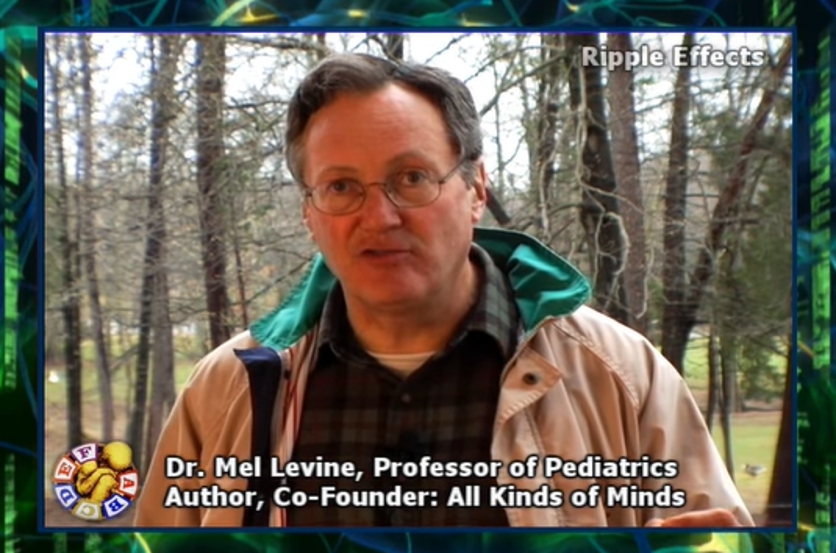 Melvin Levine was a Rhodes Scholar, a Harvard Medical School graduate, and the former chief of ambulatory pediatrics at Boston Children's Hospital before he gave up his medical license amid a number of well-founded pedophilia allegations. (YouTube screengrab)
Melvin Levine was a Rhodes Scholar, a Harvard Medical School graduate, and the former chief of ambulatory pediatrics at Boston Children's Hospital before he gave up his medical license amid a number of well-founded pedophilia allegations. (YouTube screengrab)
But, publicly, Levine defiantly denied wrongdoing. Instead, he shot himself in the head the day after 40 of his former Boston Children's Hospital patients sued him for groping, fondling, sexually battering and, performing oral sex on them when they were kids. At least one of the plaintiffs told a reporter that Levine may have fled to North Carolina to avoid complaints in Boston.
About 10 of Levine's former UNC Medical Center patients then filed suit against Boston Children's Hospital. "They claimed that Boston Children’s Hospital shirked its legal responsibility to report Levine to the authorities. The suit claimed that instead Boston Children's Hospital engaged in a conspiracy to keep Levine's pedophilia quiet.
If Boston Children's Hospital took the appropriate actions when it employed Levine in the 1960s, 70s, and 80s, the plaintiffs said, then he never would've never been able to get his medical license in North Carolina and sexually abuse them.
Similar suits were of course brought against the local Boston Archdiocese, followed by sustained press coverage. And doctors in Massachusetts, unlike religious figures, are required by state law to report suspected child abuse to the authorities.
Massachusetts Superior Court Judge Merita A. Hopkins, however, seemed to disagree. She dismissed the suit brought-by the North Carolina survivors, thereby effectively sheltering Boston Children's Hospital from its failure to report Levine. The hospital never accepted responsibility for Levine's move.
The state's highest court later upheld Hopkins's dismissal, which is an appellate decision my team and I are investigating for potential conflicts of interest. Anyone with relevant information is encouraged to contact us.
In any event, however, it's likely worth noting that prior to becoming a judge, Hopkins was the Boston city attorney. Boston Children's Hospital, in turn, brings in hundreds of millions of dollars to the city and state via the federal funding it receives for research and Medicaid, as well as perceived prestige, which is fragile. And that's not to mention Harvard's clout in local legal circles.
Other shadows also hang over Hopkins's legal career. She was a member of the Boston FBI's now-infamous New England Organized Crime Strike Force in the 1980s, while it oversaw James "Whitey" Bulger as one of its criminal informants. Later, she married James Ring, who was the agent-in—charge of that squad.
Thus, thanks to a former city attorney/member of the "old" Boston FBI, it seems that justice eluded the North Carolina survivors who sued Boston Children's Hospital, just as the "new" Boston FBI refused to help Justina. Even with the North Carolina suit squashed though, Harvard's public-relations personnel and its consorts in law enforcement and the press would barely have time to catch their breath, it seemed, before the other shoe dropped.
The year after Levine "took the coward's way out," as multiple uninvolved observers phrased it, police busted Boston Children's Hospital pediatric endocrinologist Richard Keller with between 60 and 100 DVDs of child pornography and 500 sexually-explicit "high-gloss" still photographs of unidentified children in his suburban home.
Keller's work history at BCH dates back to the 1980s, when he graduated from Harvard Medical School, and almost exactly to the time Levine left Boston Children's Hospital for UNC. Keller later admitted he harbored a sexual interest in adolescents that entire time.
The public never found out if Keller's stash, much of which was found in his bedroom, included images of his Boston Children's Hospital patients. Boston Children's Hospital declined to comment as to whether it would contact the parents of Keller's patients who didn't have upcoming appointments. Boston Children's Hospital thus seems to have decided that some roads are best left untraveled.
Keller cried at his sentencing and called himself a hypocrite. He got 7.5 years—some 2.5 years less that I got in the same federal courthouse from Judge Gorton for saving Justina's life. And no one sent Keller to a CMU. He was released on May 14th, 2018.
Maybe The New American's next headline will be, "Save a Girl's Life, Get Treated Worse Than a Pedophile Pediatrician."
And as shameless as Judge Gorton seems to be, I'd still like to think that some other events at Boston Children's Hospital would make even him blush.
Within months of Levine's suicide, for example, and around the time police raided Keller's home, Boston Children's Hospital attending psychiatrist Raymond Kam became convinced one of his adolescent patients "was influenced [by], spoke with, and being physically hurt by evil spirits" (emphasis added), according to documents filed by the Massachusetts Board of Registration In Medicine.
And Kam wasn't alone. Boston Children's Hospital senior attending psychiatrist Enrico Mezzacappa, Kam's former mentor, later joined him. Together, along with an as-yet-unnamed psychiatry trainee and a Boston Children's Hospital chaplain, they came up with a plan to "address" their patient's alleged spiritual issues.
Kam offered to become the girl's "spiritual mentor." He took her to his church, gave her a cross to wear in exchange for a different religious symbol she was wearing, and let her stay over at his home on a few occasions when her father kicked her out. Kam later failed to report her claims of abuse when she told him her mother knocked her down a flight of stairs and tried to asphyxiate her.
Authorities, however, eventually found out anyway. The statement of allegations filed against Kam by the Massachusetts Board of Registration In Medicine is available here and the consent order signed by Mezzacappa reprimanding his medical license is available here.
The board's actions were not without apparent irony. Kam's privileges to practice medicine were suspended pending his own psychiatric evaluation. BCH fired him immediately.
But he's since regained his medical license. Currently, he's listed as a practicing psychiatrist at South Cove Community Health Center in Boston.
But what Boston Children's Hospital didn't do was perhaps the most incredible aspect of this real-life cross between One Flew Over the Cuckoo's Nest and The Exorcist.
“The disciplinary action taken by the Board of Registration In Medicine against Dr. Mezzacappa does not affect his ability to practice at Boston Children's Hospital and he remains a member in good standing in the Department of Psychiatry,” a Boston Children's Hospital spokesperson told the Boston Globe about three months before the Boston Children's Hospital Psychiatry Department came up with perhaps an equally-dubious and somewhat-spiritual diagnosis for Justina.
But the Pelletiers likely never heard about Levine, Keller, Kam, and Mezzacappa, nor of Ioana Simona Bujoreanu, before they brought Justina to Boston Children's Hospital. Most of the media didn't report on them, and the little coverage was fleeting compared to the focus on the Roman Catholic Church scandal. Now, why was that? Aren't pedophile pediatricians just as scandalous as pedophile priests? It's estimated, after all, that Levine saw 5,000 young boys at Boston Children's Hospital before he moved to North Carolina and he was far more famous than any of the pedophile priests in the Boston area
Yet the Boston Globe latched onto one scandal but not the other. Well, word is that was because the Globe didn't care so much about the victims of these scandals as it did about weakening the political power of the Roman Catholic Church in Massachusetts, the most Catholic state in the Union. That was, after all, the principal effect of the Globe's Spotlight coverage on the pedophile priests. And, in turn, that paved the way for Harvard to supplant the Catholic church as the most powerful political entity in the state. This change in local political power, many locals believe, was the Globe's real goal, and that of its backers.
Had Justina's parents known about any of this, they likely would've made different treatment choices. And my reporting helped inform others of these topics before the DOJ moved me to a CMU.
I published articles about the skeletons in Boston Children's Hospital's closet at HuffPost (left) and InfoWars (right) on back-to-back Marathon Mondays in 2017-2018 before the DOJ sent me to a CMU ahead of Marathon Monday 2019. (HuffPost and InfoWars screengrabs)
Justina wasn't the first child either, it turns out, to go through this kind of trauma at Boston Children's Hospital. Cases like hers are-common enough, that BCH has a name for them. You see, in medicine, the procedure to remove the tonsils is called a tonsillectomy (pronounced like tawn-sill-ekt-tahmee), the procedure to remove the appendix is called an appendectomy (pronounced like app-penn-dekt-tah-mee), and the surgery to remove the larynx is called a laryngectomy (pronounced like lair-ingh-ekt-tahmee). Boston Children's Hospital calls what it did to Justina a parentectomy (pronounced like parent-ekt-tah-mee).
Further, BCH's history of parentectomies dates back at least 20 years before Justina ever set foot inside the Harvard hospital. Patty Mele's case appears to be the oldest published. Her now-grown son was born with mito in the 1990s.
Just as happened to Justina, BCH immediately resisted the mito diagnosis in the Mele case and called social services to report her, however, Patty Mele had a trump card. It turned out she worked for the state social-services department as a case reviewer.
The man the state sent to knock on Mele's door knew her. Mele says he chose not to take her son. He thoroughly investigated the case instead, and dropped it.
"Now we've graduated to accusing mothers of Munchausen by proxy and are taking children away and putting them in DCF custody. Not only taking them away but stripping them of a diagnosis of mitochondrial disease, saying [parents] can’t see other medical experts, admitting them to Children’s who will hold them hostage and treat for something else," Mele told TheBlaze around the time Judge Johnston issued the gag order in the Pelletier case.
Mele also posted to the FreeMartyG Facebook page, and later in a message, saying that based on her personal and professional experiences, "Briefly I believe Marty played a large roll in pressuring Children’s to release Justina to wayside. By getting Children’s were it hurt. Donations. Justina made it home.”
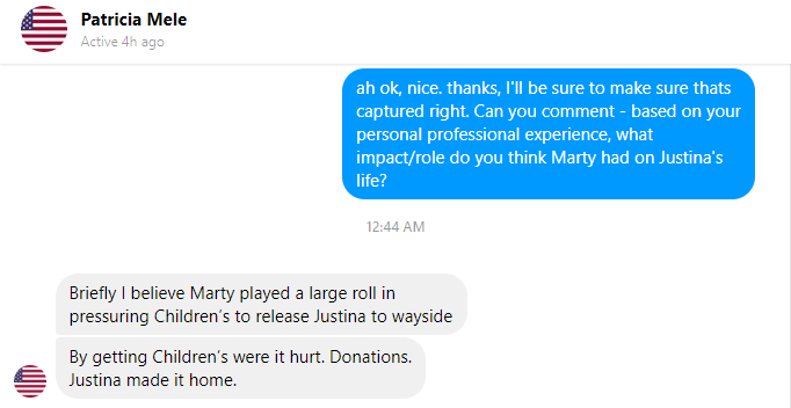
"Briefly I believe Marty played a large roll in pressuring Children’s to release Justina to wayside. By getting Children’s were it hurt. Donations. Justina made it home.” – Former MA volunteer case reviewer and mito Mom Patty Mele (Facebook screenshot)
Indeed, Norwegian child Sindre Hylland died on Christmas Eve 2004 after Boston Children's Hospital overrode his parents to perform a costly surgical procedure they viewed as unnecessary and risky.
BCH later went to the state again in 2007 to strip Kimberly Castro of custody of her daughter, magnet-school honors-student Chelsey Cruz. Castro objected to BCH's off-label use of the chemotherapy drugs CellCept® and Cytoxan® to treat Chelsey''s case of lupus nephritis. The side-effects had proved devastating to Chelsey.
But BCH insisted it knew best.
Chelsey, always eloquent despite years of fighting her horrific illness, wrote the following letter in February, 2008 to the state family-court judge overseeing her case:
Dear Your Honor,
It was of great importance that I speak to you. Since I was denied the request to speak to you in person, I'm taking the opportunity to address my concerns about this matter.
The first thing I would like to mention is that I believe that this time I have been separated from my family has taken an emotional toll on me. To be separated from the family I know and love, that have been my only true advocate and support was in no way beneficial to me because at a time like this is when I need my family the most. My parents have truly been there for me since the beginning and besides me, they know more about me than anyone else. They have been the only one that has been listening to how I feel about my illness and the effect of the treatments that I have been receiving. The conflict that I am having is that according to the law my parents are supposed to have the right to be making all decisions for my medical care.
Now if this is true and I have been telling my parents how I feel and they address my concerns to the doctors but the doctors ignore how the treatments are affecting my body and my life, as a result my parents are being penalized for voicing my concerns and respecting the fact that I do know-how these treatments are affecting me and the everyday struggles I endure because of them. For example, since starting these treatments I'm very fatigue[d] most of the time because of constant diarrhea. I used to have so much hair that I couldn't even put it into a ponytail and now it's so thin, that I can see my scalp. Not to mention the infections that I get often due to my suppressed immune system that is caused by the prednisone and cellcept. Even though I have expressed to the doctors my concerns as well as I needed to be hospitalized because of the complications to these treatments they continue to keep giving them to me. It's as though they are ignoring me. They continue to force these treatments on me and they don't care what happens to me. I feel that without my parents who are my advocates, I now have no one to advocate for me properly.
In a few months I will be 16 years old and I feel that I am able to make a sound decision about the medical treatment and physician that I would like to choose. I feel that I have carefully thought about and weighed the pros and cons of the treatment for lupus. I have already tried what the doctors consider to be standard care for the past 5 years. I have experienced the horrifying side effects of them and realized that they have not helped me in any way in fact I feel I have gotten worse and now require dialysis. In light of this, I no longer want to use them. The reason why I can say this is because I know that I have tried a lot of their recommended medications and treatments and they keep changing which means the doctors are still looking to try to see what will work. I have read about Dr. Fuhrman and found he has successfully treated many lupus patients in fact he has treated a girl my age with lupus or renal disease. This gives me a lot of hope that he can help me to get better so I can go on living a normal life. I would also like to be back with my mom and brothers without interference from any agency. I hope that you reading this letter gives you a better understanding of me and my situation and I'm optimistic that you will make the right decision.
Sincerely,
Chelsey Cruz
Chelsey died 31 days later. She and her mom never got to try the other treatments they wanted.
"Even if lupus would kill her, why take her away from me, and not let me spend the last days with my child?" a grieving Castro rhetorically asked The Hartford Courant. "I was the best mother to my child."
The law that Chelsey referenced in her letter and that Dershowitz later cited in his interview above about Justina includes a decades-old Massachusetts family-court decision in Sevigny's Case 337 Mass. 747 (1958). The court held, "The courts are not to determine which side of a medical dispute is sound where each side is supported by reason and logic."
It thus does not appear the Pelletiers, Castro, and other parents were wrong as a matter of law. Rather, it seems they were wrong in assuming the law matters when it comes to Harvard, absent extraordinary circumstances.
“The courts are not to determine which side of a medical dispute is sound where each side is supported by reason and logic.” —Sevigny's Case 337 Mass. 747 (1958)
And for every BCH parentectomy case that appears online, an unknown number of others were suppressed due to gag orders like the one Judge Johnston used to silence Linda and Lou Pelletier, until Lou bravely disobeyed it. Despite a motion to hold Lou in contempt of court for speaking out on Fox News, Judge Johnston never did so and in fact he dissolved his gag order rather than enforce it—likely because it was manifestly unlawful in the first place and the proverbial jig was up due to the unprecedented intensity of the public scrutiny the Pelletiers were able to bring to bear.
No other family enjoyed such support in its struggles against Boston Children's Hospital. And yet no amount of publicity was enough to get Harvard's hospital to admit it was mistaken about Justina's mito. Rather BCH seemed to unleash an army of trolls to try to turn the tide of public opinion.
All kinds of accusations against the Pelletiers started popping up, mostly in the comments sections of online articles, leveled by unnamed accusers with poor spelling and grammar who claimed to possess inside information. In reality though, they appeared to be outsourced cyber disinformation agents with a poor grasp of English. They would use, for example, the wrong "its" or "it's" the wrong "there", "their", or "they're", etc.
Very little of what these trolls said got any traction or had much staying power, except for one deceptively simple false propaganda argument. Since Justina entered BCH in a wheelchair, the trolls claimed, it’s not accurate to blame BCH for Justina's continued reliance on a wheelchair today. The truth, however, is slightly more complicated. Most media outlets, further, got these events wrong in their coverage.
It's important to note that Justina entered BCH with the flu. That was, in fact, the whole reason she was hospitalized. The flu, you see, is known to cause severe complications for mito patients. This reality also torpedoes another logical fallacy that was used to undermine the accuracy of the mito diagnosis from Tufts.
The trolls implied, without reference to Justina's influenza and the well-known complications it caused for her due to her mito, that the very fact Justina was having trouble eating and walking when she arrived at BCH showed that the Tuft's treatment was ineffective and the mito diagnosis was wrong. In reality though, Justina's symptoms were consistent with mito plus the flu.
Justina, moreover, should've gotten better when the flu subsided, rather than still be confined to a wheelchair today. It seems likely she would still be skating now if her treatments for mito—which is often degenerative, progressive, and fatal, especially when it's left untreated—weren't stopped for 16 months.
Another fallacy stated that the supposed ineffectiveness of the Tufts mito therapies led Justina's family to bring her to BCH. The truth, however, is that Justina only went to BCH because her gastroenterologist Dr. Alejandro Flores moved his practice there the month before.
Flores had operated on Justina and treated her successfully for more than a year at Tufts up until that point and Justina was having trouble eating and keeping food down with the flu. Since mito is a metabolic condition, i.e. one that affects the body's ability to process food into chemical energy, Justinals difficulty eating was causing a double-whammy by starving her already-troubled cellular metabolism. Here’s a video about how mito affects the body:
WTIC TV: Mitochondrial Mystery - The Justina Pelletier Case from Beau Berman on Vimeo.
The Pelletiers brought Justina to BCH hoping that Flores would get her eating again, and thereby mitigate her flu complications. BCH never allowed her to see Flores though.
Now, BCH never admitted that it experimented on Justina or used her for research. The 32 Congresspeople who co-sponsored Justina's Law, however, didn’t seem fooled based on the language of the bill. Mark Korson, the leader of the Tufts mito team, didn't seem fooled either. The following text from one of his emails appeared on screen in this video (starting at 2:44):
“…disorder is a chemical one, i.e. there is no blood test or other investigation that can prove the diagnosis. It is a clinical hunch, a best guess. The team has demanded that Justina be removed from the home and severe restrictions imposed on contact with her parents. This represents the most severe and intrusive intervention a patient can undergo, far more than a cecostomy. For a clinical hunch. Without a proven diagnosis, her diagnosis should be considered a hypothesis and the current hospitalization an “experimental situation.” And perhaps that is appropriate in this situation.
The FDA and NIH oversee clinical trials for many devices and drugs which are experimental. In order to protect the public, there is very strict scrutiny of the trials. The parameters for monitoring are determined by a group of peers unconnected to the investigations and regular reporting is required. If Justina’s admission is an experimental process to evaluate an hypothesis, what’s the monitoring plan? Who is scrutinizing the process? If the hypothesis is incorrect, or partially incorrect, who is advocating for Justina’s medical condition and how?
I am dismayed by the very opaque nature of Justina’s evaluation. I heard nothing for days when these issues were first developing at C despite being the physician who referred Justina to the C E.R. I was concerned when Dr. Alex Flores, Justina’s GI physician responsible for Justina’s cecestomy (up to that point, the patient’s main intrusive medical intervention) had not been called to participate in the evaluation process until the situation had escalated. I was discouraged when the Children’s team, three weeks into the admission, had not made any effort to contact community providers and teachers who had known Justina over a long period of time. And I was disillusioned when Children’s refused to engage in any dialogue with Justina’s treatment team at Tufts.
I have heard nothing from the Children’s team since the hearing, at which point I provided testimony. I asked Dr. Flores yesterday his impression of Justina’s course. He told me that “I was unable to see her due to legal restrictions. I will talk to “neuro attending” next week.”
So now I am writing because it feels like Justina’s treatment team is out to prove the diagnosis at all costs. So again, where is the objective scrutiny? Who is asking the team on a weekly basis, for example, for specific updates on Justina’s different medical and psychological issues to gauge process.
Thanks for helping me to understand this process.
Mark Korson, MD
Now, given the information and misinformation above, why do you think Obama - DOJ—holdover Hugh J. Hurwitz ordered me placed in a CMU?
Click here to read Abandon All Hope Ye Who Enter Here—Part 7 of the CMU Series.

 Donate Now
Donate Now
 Follow
Follow 